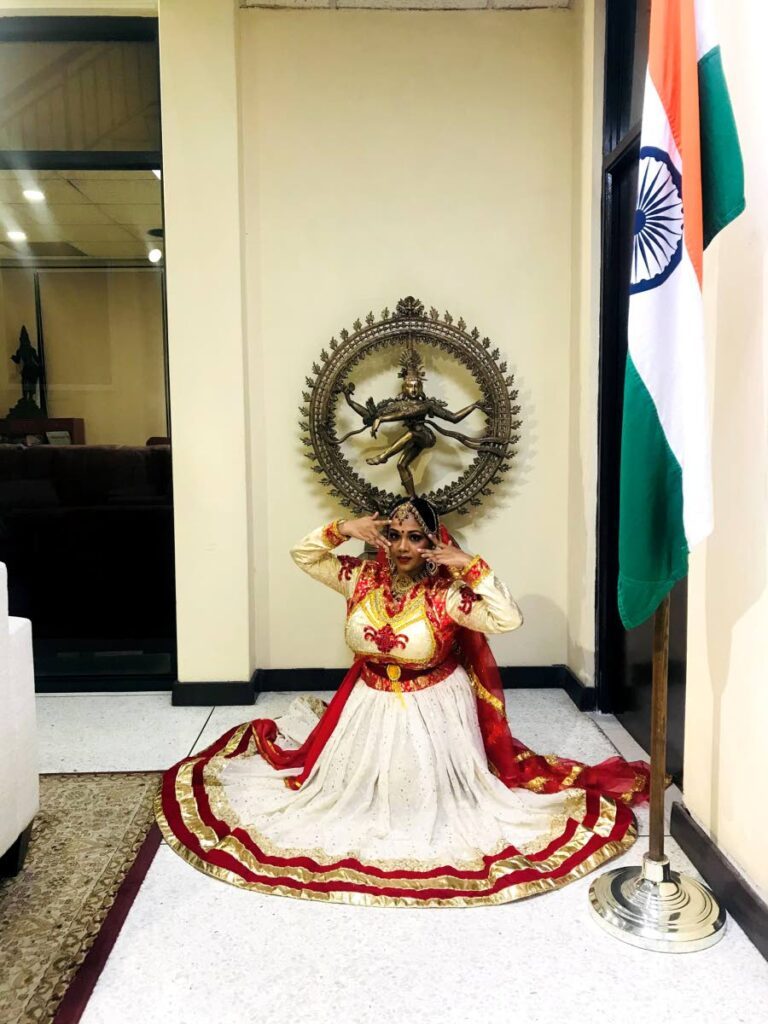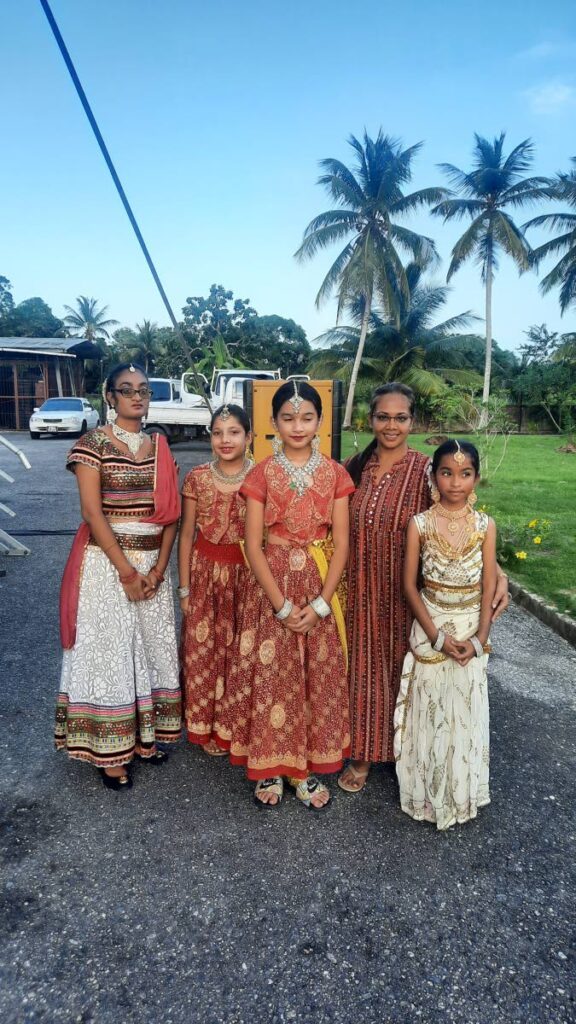Karishma Ramoutar gives special-needs children dance classes

A lifelong love affair with Indian dance and her devotion to her brother has led 35-year-old Karishma Ramoutar to establish her own dance school in McBean, Couva.
In a phone interview, Ramoutar told WMN her focus is children, especially those with special needs.
This is influenced by her younger brother, Kavir who has Down’s syndrome.
Ramoutar said she was attracted to dance from a young age, and one of her core memories is running next door to watch an Indian dance class on a Saturday morning.
“Dancing was a happy accident for me because there used to be a dance school next door to where I lived, so on a Saturday morning, I’d get up and before I brushed my teeth or anything I would run next door through a little hole in the fence, and go sit down and look at these girls dance.
“Some of the girls, now women, who used to be there when I was coming across, they always make fun and say, 'look how big you get. I remember when you used to run across to the temple in a nightie with your dolly in your hand.'”
She said her mother eventually enrolled her in dance classes, and she went on to take part in competitions and pursued further training.
“I entered Mastana Bahar in 2004. It was the first major competition I entered solo. I don’t remember what I placed, but I made it to the finals. When I was a teenager I placed second in a talented teenager competition and I did the Divali Nagar circuit.
“I trained with various people around Trinidad including with Sophia Mustapha and Michael Salickram, as well as Medhakshetra from India where I did khatak dance online during covid.”
Her mother was also the one who encouraged her to open her dance studio, Nritta Dance Company, because Ramoutar found she wasn’t satisfied with the experience she was getting at other dance studios.
“That’s where it started. Nritta means dance in its purest form. One of the first major events I would have performed for was with Island People on the road, for their Kuchela Bollywood theme in 2010. The rest was just building from there, so now I do classes at various schools around the country.
"I’m the PRO of the McBean Ramleela and Cultural Group. Dance is heavily influenced in Ramleela as well, even as make-up is part of it, so dance has helped my skill set in that.
“I’ve been one of the East Indian dance judges for Best Village for the last three years. Judging the competition gives me the chance to see the talent and the effort that the groups put into their presentations.
“One of the more recent fun things that dance has awarded me, was that White Oak cast me as part of its It’s Just A Lil Wine documentary during the pandemic, and I’ve been part of a couple of their campaigns since then. I was part of their Fuh D Culture campaign for this Carnival.”

For the past two years Ramoutar has worked at co-director of Pro Caribbean Group, which offers marketing, logistic solutions and distribution services.
She had originally planned to go into dance full-time but was forced to find other sources of income because of the covid19 pandemic. The studio was opened in early 2020, shortly before pandemic hit. Then she was only able to give classes online.
“We got it done because we didn’t have a choice, but it’s difficult to do an online class with children, especially with the intricacies of Indian dance.”
She now works from home which gives her more time to teach classes.
“I have four classes in different schools as well as teaching in the home studio. I’ve also started an adult fusion class. It’s a mixture of Indian dance and belly dance, and it’s for older people. It’s more movement-based and theory-based, so we’re not super-focused on getting the moves correct. It’s more to encourage movement of the body. Research has shown that dance helps improve memory and helps reduce the effects of dementia, Alzheimer’s, etc.”
She said she got the idea when her mother retired and was looking for something to do.
“The class is for women 35 and up and younger women with kids. It’s one hour a day. Some days they might not feel like dancing, so they sit and chat with each other. We formed our own little community there in the studio, so it’s a safe space, a comfort. You come and dance, move your body, release any extra stress and tension. We’ll have tea parties after and talk about life and children and whatever else they’re enduring at that stage in life.”
Ramoutar said a major inspiration for her is her younger brother. She said the studio is located close to her home so he has access to it.
“It also gives him a sense of responsibility because he says he’s my manager, which translates to him being manager of my studio. From all the years of observing me dance, he’s picked up all the moves. A couple years ago I went to perform and he took over my performance. He’s done a music video with us as well.”
She said her brother takes his responsibility seriously, especially when he goes with her to performances.
“From being with me all the time, he’s very accustomed to what performance and dance class entails. I remember when they were launching Starbucks in Chaguanas, I went to perform and he had my bag. He walked up to a man and asked 'where is backstage?' because he knows we have to go backstage and put our things down before a performance. The man in charge said 'we don’t have a backstage,' and he looked at this man as if to say, 'what do you mean you don’t have a backstage area?' He was in complete shock.”
Ramoutar said, based on her relationship with her brother, she plans to have free classes for special needs children in the near future.
“Dance helps him to interact with ‘normal’ children. Also, you find a lot of children have never interacted with someone who is special needs before, so on their end it gives them an opportunity to interact with someone who is a little bit different to them, and who may take a little while longer to understand something.”
She said the endeavour would be challenging, but she has experience working with special needs children.
“These children all learn at their own pace. When my brother was at the Pointe-a-Pierre special school, I taught a group of them a dance to perform for an event. It would follow the same format as a regular dance class, it would just be paced differently to account for their abilities,” she said.
She said if someone wants to take up Indian dance, they should do their research and figure out what style appeals to them.
“Get a guru, study, and never stop learning. A good classical style is always the best place to start. To this day, I do refresher courses and delve into new styles of dance, because dance is so encompassing and dynamic. There’s also a new skill or something you haven’t learned.”
She believes dance is more widely accepted in society than it was in the past.
“Many years ago, dance, especially Indian dance, was taboo in families. It wasn’t something ‘respectable’ girls did, but now it’s extremely widely accepted. Everyone wants to dance, no matter the age or race.
“Dance is for everyone! If you have one arm or one leg, if you’re in a wheelchair, it doesn’t matter, dance is very adaptable.”


Comments
"Karishma Ramoutar gives special-needs children dance classes"